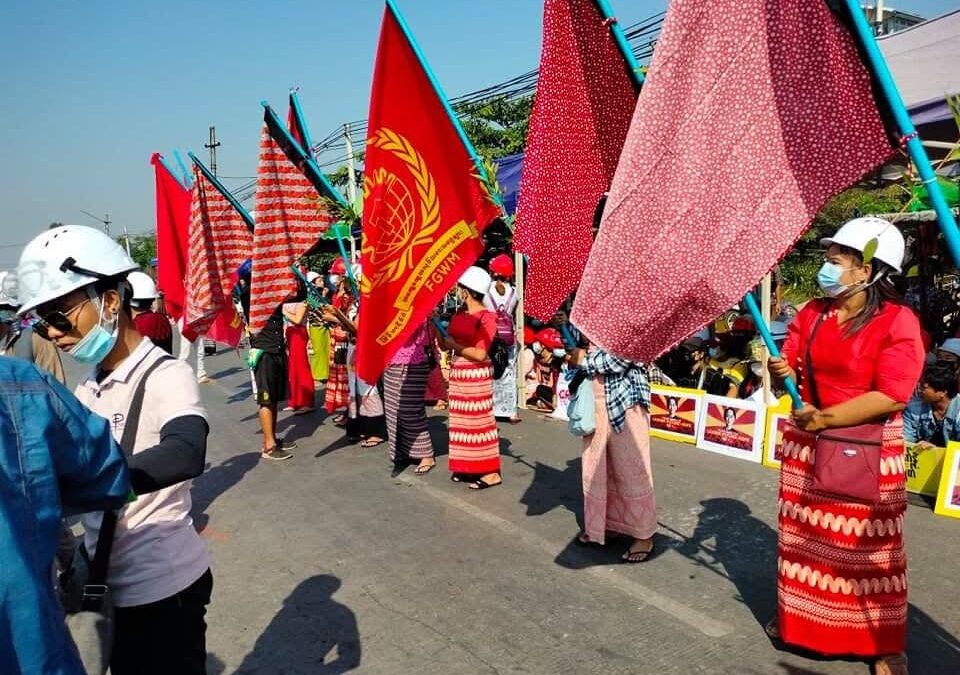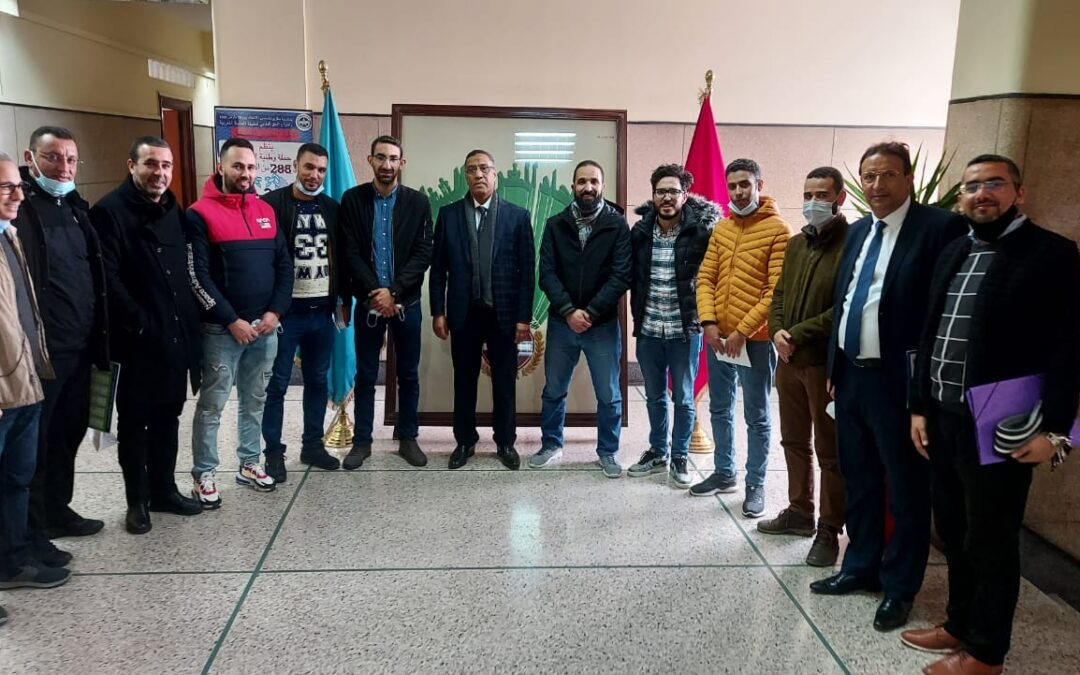
Mar 17, 2021
Gig economy companies employ multiple strategies that undermine gig worker rights around the world, according to a new issue brief by the International Lawyers Assisting Workers (ILAW) Network, a project of the Solidarity Center.
“Taken for a Ride: Litigating the Digital Platform Model,” released today, analyzes how companies such as Deliveroo, Foodora and Uber deprive couriers and drivers of their basic employment rights globally.
“The collection of cases analyzed in this report reveals the extraordinary extent to which these companies are embroiled in litigation around the world,” write co-authors Nicola Countouris, labor law professor at University College London (UCL) and research department director for the European Trade Union Institute (ETUI), and Jason Moyer-Lee, a fellow at Georgetown University’s Kalmanovitz Initiative for Labor and the Working Poor.
The brief details a string of losses for gig economy companies, including before the highest courts of France, Spain and the United Kingdom, and in lower tribunals from South Korea to Uruguay. Such worker victories have come at great cost and, due to weak enforcement regimes, gig economy companies often do not extend rights even after losing cases, concludes the report.
In countries where companies have seen more success—such as South Africa and the United States—the analysis shows how gig economy employers have deployed multiple tactics to pull off the victories, such as forcing workers into arbitration, making them sign complex and convoluted contracts, or relying on an international corporate structure.
The brief recommends gig workers pursue strategic litigation, complemented by collective action, campaigning and communications strategies targeted at local lawmakers, with a special focus on enforcement. And governments, the brief states, “must proactively and rigorously enforce the law,” while applying penalties stiff enough to dissuade unlawful behavior.
“These companies have gone to great lengths to insulate themselves from responsibility and have put an extraordinary burden on workers to claim their basic rights at work. Governments must step in now and enact legislation that protects the rights of all workers providing labor to a digital platform company,” says Solidarity Center Rule of Law Department Director and ILAW Network co-founder, Jeffrey Vogt.
The report was made possible with funding from the Ford Foundation.

Mar 9, 2021
Trade unions shuttered workplaces and brought thousands of people to the streets Monday in Myanmar, mobilizing a general strike as part of their continued resistance to the military takeover of the government on February 1.
In a statement calling for a nationwide strike on Sunday, the coalition of 18 unions said: “To continue economic and business activities as usual, and to delay a general work-stoppage, will only benefit the military as they repress the energy of the Myanmar people; The time to take action in defense of our democracy is now. The workers of Myanmar are prepared to take action to protect democracy and save our future generations from dictatorship. We believe all Myanmar people are prepared to respond to a call to action.”
In response to worker leadership in the civil disobedience movement (CDM), including other work stoppages, the military has declared at least 16 labor unions to be “illegal organizations” and has arrested or filed arrest orders for at least 71 individual union leaders, sources in the Myanmar labor movement tell the Solidarity Center. In 135 confirmed cases, workers have been fired for participating in street protests, while thousands more have had their factory jobs threatened if they participate further in the CDM.
The unions, mostly led by women, are on the front line with students and broader civil society calling for a return to democracy. For their leadership, they have had their union offices and homes and dormitories, where most garment workers live, raided and warrants for their arrest issued. Over the weekend, according to the Confederation of Trade Unions-Myanmar (CTUM), the military sought to arrest seven labor leaders, five women and two men: CTUM Women’s Committee President Swe Swe Khaing; AMG Garment Factory Union President Thet Mar Soe; Honor Garment Factory Union President, Sai Min Theta; Popular Garment Factory Union Secretary Treasurer Aye Thandar; Industrial Workers’ Federation of Myanmar union organizers San Sen and Myo Min Win; and Ei Ei Hlian, an executive committee member of Charming Garment Factory Union.
More than 60 people have been killed during the brutal crackdown on protesters and nearly 2,000 people have been arrested.
Since the political opening to quasi democracy in 2011, Myanmar has seen rapid growth in foreign direct investment. Major multinational brands source from factories there, with low-paid workers producing garments, footwear, sports equipment, cars and consumer goods. The country logged $4.5 billion in garment exports from October 2019 to July 2020.
Myanmar unions are urging countries and businesses to publicly condemn the coup; to exercise due diligence to ensure no business or investment is linked directly to or associated with the military; to announce that future international investments in the country would be reconsidered if democracy is not restored; ensure that no worker or union leaders are punished for going on strike or joining the current demonstrations against the coup; and to protect and respect freedom of association and the rights to assemble and peacefully protest.
The global labor movement has condemned the military coup, including the International Trade Union Confederation, AFL-CIO and IndustriALL, and called for the immediate restoration of democracy.

Feb 24, 2021
Teachers in Jordan are “insisting on their legal rights to have an association” and will not give up after the government dissolved their union in July and imprisoned union activists, says Kefah Abu Farhan, a board member with the Jordan Teacher Association (JTA).
“Teachers, male and female, stress day after day that these measures are not acceptable for us and we will not back down until the teachers association goes back to its legal standing,” said Abu Farhan, speaking recently with the Solidarity Center through a translator.
The JTA, representing 140,000 active members, waged a month-long strike in 2019 when the government failed to respond to its demand for a 50 percent salary increase. As a result of the strike, teachers received a 35 percent wage increase and 14 additional improvements, the most important of which was the union’s participation in managing the teachers’ savings fund, with its assets totaling more than $141 million.
In July 2020, police raided JTA headquarters in Amman, the capital, and 11 of its branches across Jordan and jailed thousands of teachers, including JTA chairman Nasser Nawasreh. The teachers, some of whom went on a hunger strike, were released after spending a month in prison. Many are still being prosecuted in court, says Abu Farhan. In addition, the government forced 62 teachers to take early retirement “as punishment for expressing their views,” said Hala Ahed, a lawyer on the JTA’s legal team, speaking with the Solidarity Center. The government dissolved the JTA for two years in December 2020 and imprisoned its board members for one year.
Crackdown on Union Freedom Dangerous Road for Democracy
The Jordan government’s move to shut down the JTA was denounced by the global labor movement and human rights organizations worldwide. The United Nations Human Rights Commission said the action is “emblematic of a growing pattern of suppression of public freedoms and the restriction of civic and democratic space by the Jordanian government, including against labor rights activists, human rights defenders, journalists and those who have peacefully criticized the government.”
In October, Jordan authorities barred the JTA from holding a press conference to discuss the conditions teachers are experiencing, a ban implemented by security forces delivering an order from the Amman governor.
Jordanian civil society organizations and unions drafted a solidarity letter condemning measures targeting the right to form unions and other civic freedoms. The JTA’s success in winning the government’s agreement to sign a collective bargaining contract, and the strong stance of teachers demanding their rights, attracted broad public support. The government shut down the JTA in part because it “has become ground zero for those who want to gather, for the middle class to voice their dissatisfaction,” says Ahed.
“There is a symbolic message sent here: Officials can encroach upon constitutional freedoms and escape punishment,” she said. “This could be indication that the upcoming period will be one of oppression, suppression, restraining freedoms in very blunt manner. This is very dangerous.”
Reversing the Gains of the 2011 Arab Uprising
The teachers’ union was established in 2012 after the Jordan monarchy issued a royal decree, reviving the union suspended in the 1950s. Expanded freedom to form unions was among some of the civic freedoms working people championed and won during the 2011 Middle East and North Africa Arab uprisings. In 2011, Jordan amended its constitution, giving political parties and unions the right to form.
Teachers had fought for their rights to form unions and collectively bargain for decades, with many imprisoned in 1975 for setting up committees to create a union. After a new teacher’s movement arose in the 1990s, they were barred again from unionizing when the government cited the constitution to justify its refusal to recognize a teacher’s union.
The victories of 2012 “occurred because of the sacrifices of workers,” says Abu Farhan. “It’s very dangerous, very dangerous, for unions to lose their rights.” Although the country’s constitutional court has recognized International Labor Organization Convention 87 on the right to freedom of association, the government has not yet ratified it.
The government shuttered the JTA after it asked members on Facebook to weigh in on how to ensure the government follow up with its promised pay increases. One of the suggestions called for sit-ins and demonstrations, and proposed activities also included thinking about participating in or boycotting national elections.
The JTA did not commit such a violation of the law because it did not call for an election boycott and calling for demonstrations is not illegal, says Ahed. “There was no criminal act,” she said. “The criminal act under this count only applies to physically preventing people from coming to vote.” During the court trial of JTA Board members, no witnesses were allowed for the defense, she said.
“When the JTA is no more, we go back to pre-2012 days,” Abu Farhan said. “Teachers have to claim their rights, lobby, advocate for their rights. On top of that, we have deteriorating conditions of teachers and their difficulty in retaining top-notch performance. We go backward regarding future reforms in Jordan.”
Yet as Abu Farhan said, teachers will not be silenced: They protested in January even as Jordanian security forces barricaded the roads leading to the Jordan legislature in Amman. The government also placed a metal fence around an open area opposite the parliament in an attempt to prevent large gatherings.
Throughout their protests, teachers carry signs supporting the freedom to negotiate for better wages and working conditions through their freely formed union: “My union is a national achievement that Jordanian teachers will not give up on,” and, simply, “Bring back the teachers’ union.”

Feb 23, 2021
Workers in Morocco are denouncing efforts by a Peugeot Citroen factory to force union leaders to resign from the Moroccan Labor Union (UMT) or lose their jobs. Already, one union leader has been fired, according to the union.

One worker was injured during a closed-door session with factory employers, according to UMT. Credit: UMT
Last week, factory management forced 11 union activists to sign resignation letters after compelling them to spend three hours behind closed doors where union leaders say they were subjected to questioning and harassment that seriously injured one worker.
“This violation of workers’ rights sullies the image of our country,” UMT says in a statement. “We call upon all local authorities to intervene in our case, and we call for the solidarity of workers at the company, and from unions across Morocco.”
Union members met in a general assembly over the weekend, where they stood strong for their rights to form a union and bargain collectively, and proceeded with planned union elections.
Over the past few months, the workers have protested the non-payment of overtime at the factory and waged a strike earlier this year at the plant in Kenitra, on Morocco’s northwestern coast. In 2019, Peugeot SA recorded more than $4 billion in profits.
The General Confederation of Labor (CGT) in France, which represents workers at Peugeot, supported the workers’ strike in Kenitra and vowed to assist them in their current struggle.
Union leaders say they expect management to announce this week whether the workers forced to sign resignation letters will be officially fired.
Feb 18, 2021
“The accident took place earlier this month, in a factory that employs 130 workers, mostly women. The illegal factory is said to have been operating for 20 years. Labor groups including U.S.-based Solidarity Center, are campaigning for an investigation into the tragedy.”





